My small village nestles against a long, crescent-shaped sandbar, facing the ocean with its silvery waves. Here, the stormy season has no time rules like other seasons of the year, because it is not warned in advance. Just by hearing the wind whistling from behind the mountains, seeing low clouds hovering over the water, and the seabirds flying low as if dragging the gloomy sky, the fishermen know that the waves are rising, the sea is about to get angry.
The stormy sea season is like a harsh test that the fishing villagers have to relearn. The season of anchor ropes stretched on the deserted wharf, the season of boats lying still on the sand like children being punished by facing the wall when they make mistakes. The season of afternoons with no more sounds of fishing, no more lights from nets, only the wind howling like the sound of people crying from the bottom of the ocean.
Illustration - Source: Internet
My father once said: “The sea is like a woman. Soft, fragrant, salty, gentle... but when angry, it is terrifying and fierce.” My father passed away during a stormy season nearly ten years ago. A huge wave crashed into the side of the boat, pushing him into the sea. The day my mother received the tattered conical hat that had been caught in rotten nets drifting to shore, she sat silently on the stone wharf until sunset.
The entire sea was red as blood at that time. From then on, in my village, each stormy season was no longer a season of strong winds and roaring waves, but also a season of formless longing, longing that tormented those who stayed behind through the long stormy years. Fathers who did not return, husbands who did not have time to say goodbye.
Every time the sea turns, the people who stay behind seem to become more silent. The elderly burn incense by the boat as if sending messages to the boundless ocean with salty tears. Children run along the water's edge, hearing the same advice from generation to generation: "The sea is a friend, a benefactor, but sometimes it is also a source of resentment."
On stormy days, from morning to evening, under the gloomy sky, the gray clouds are dense and swirling, the wind blows into the rows of casuarina trees in strong waves, only rarely is there a weak ray of sunlight trying to break through the dark clouds.
Perhaps the most frightening sea begins at midnight, even though lying in the house, one can still clearly hear the sound of the sea churning offshore. The wind whistles through the cracks in the walls, the waves crash against the shore like the gasps of someone running and crying. The whole fishing village lies still and hopeless, listening to the sea growl in anger.
On days like that, the fishing village seemed to be quiet. By default, no one rowed out to sea, no one butchered the fish, the usually bustling fishing port was deserted. But it was also during the stormy season that my fishing village learned to rely on each other like clouds rely on the wind. Sharing each piece of dried fish, each kilo of rice. Things that seemed fragile like the rope tying the boat turned out to be as strong as the neighborly love.
There were stormy seasons, when the wind blew the thatched roofs, and no one in the village slept. But when the waves calmed down, people got up early, lit fires, boiled water, and repaired boats. Groups of people divided themselves up to count the number of intact buoys, some mended broken oars. Others repainted the sides of the boats, mended the nets. Everything went on as if the storm had never happened, as if the seafarers refused to surrender to the ocean's fury.
The rough sea season, the name sounds spine-chilling, but it is the season that teaches people to appreciate every grain of salt, every fish, every moment welcoming the seafarers back. It does not make the fishermen rich, but it makes their memories thicker. The cracks in the boats, the nets, the scratches on the skin of the hands, are all the cracks of time that the sea leaves on the bodies of people who have spent their lives at sea.
The days of rough seas have always been a constant haunt for the fishermen of my hometown. No matter how much the heavens tested the will and perseverance of the fishermen, it could not shake the desire of the people who were nurtured by the land and the sea.
The sea is still there, still surrounding the fishing village, still guiding fishermen with their boats to find the open sea, where there are loads of fish and shrimp waiting to fill the boat holds, where the desires and ambitions of those who want to get rich from the stormy, challenging, and dangerous sea journeys are hidden.
After the rain the sky will be clear again, and somewhere there is always a rainbow, after days of the sea being angry, growling and challenging the fishing villagers, the sun will shine again on the harbor, the boats will sail steadily out to sea.
And then the waves will calm down, stop being angry, gently rolling to the shore, the sea breeze will follow the birds to blow across the time-worn roofs, carrying the salty scent of the sea to soothe the fishing village after the gloomy days. Everything will return to its original orbit, at that moment, the sun seems to be created to warm, to regenerate people's hearts after another stormy sea season has passed!
Song Ninh
Source: https://baoquangtri.vn/mua-bien-dong-195842.htm


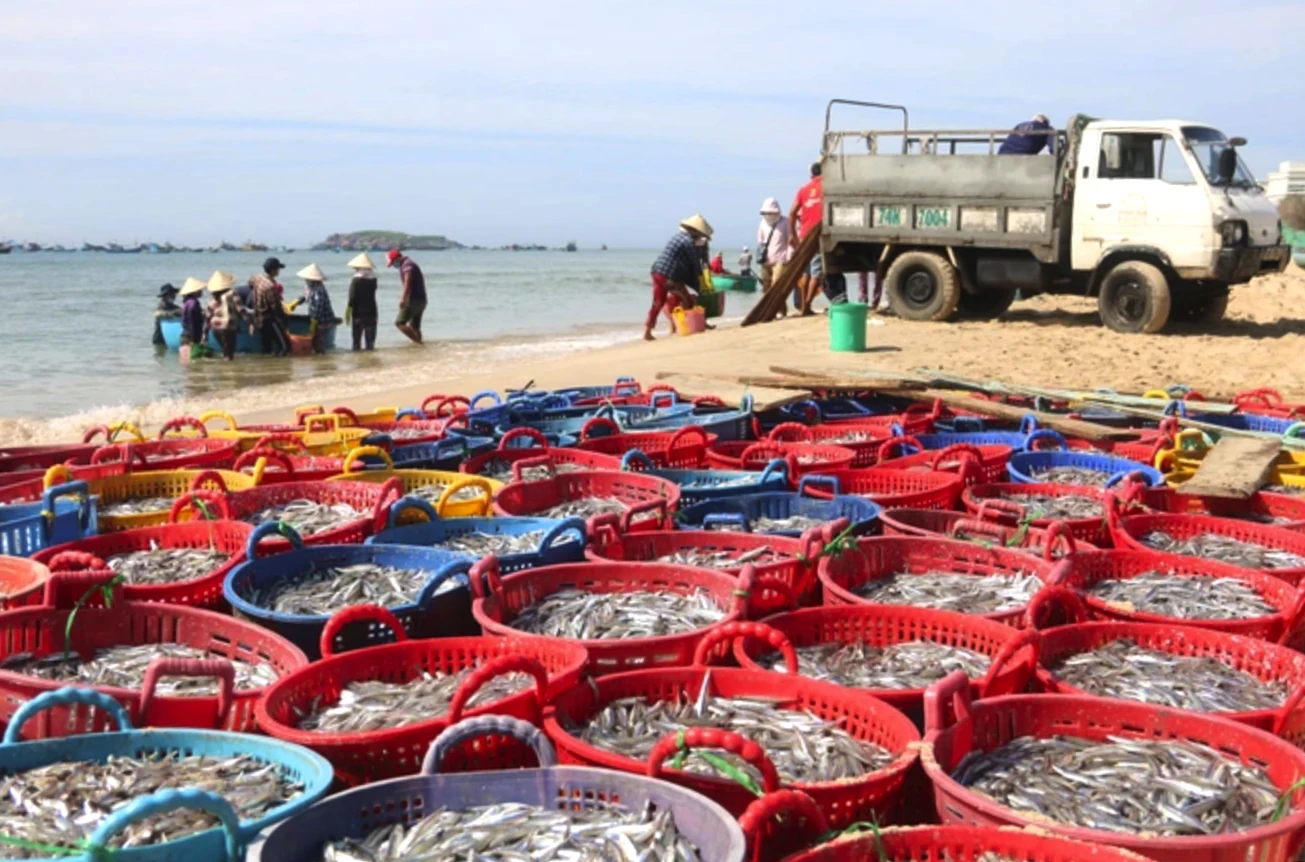

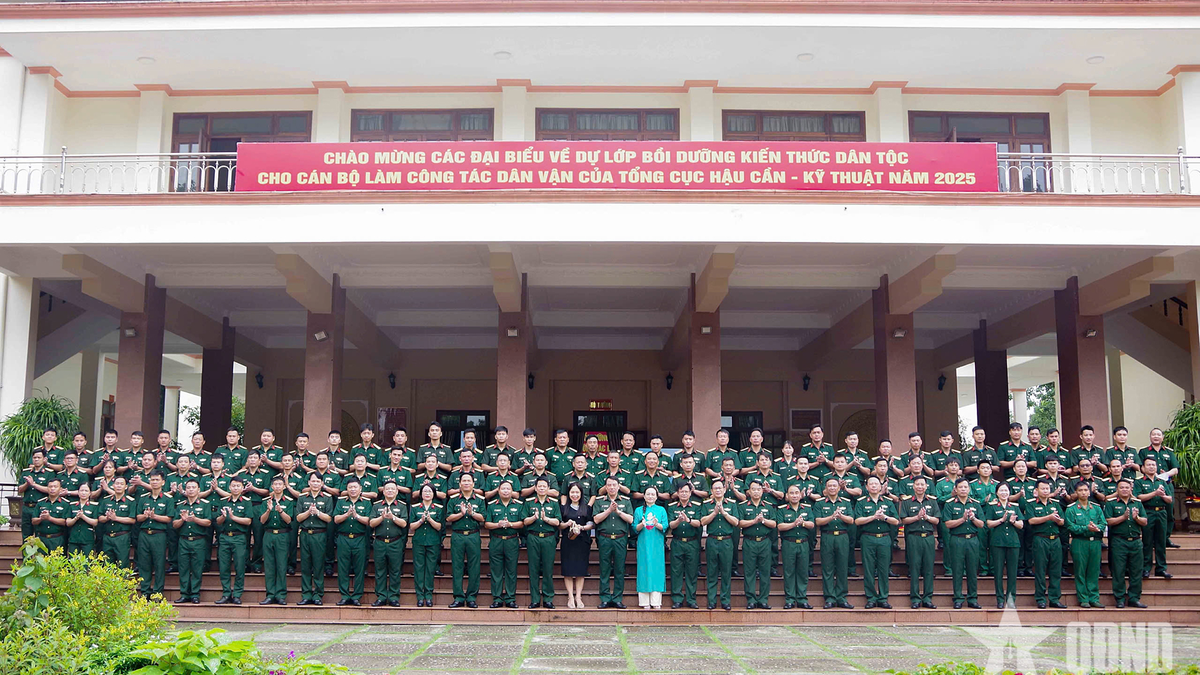



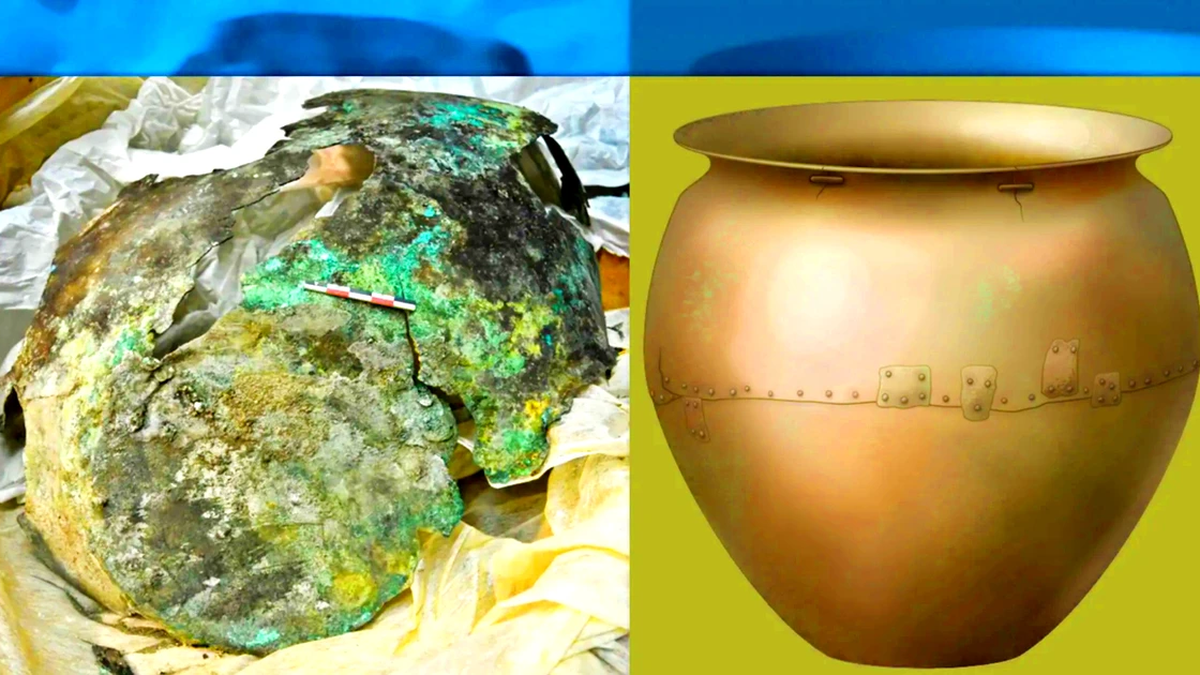













































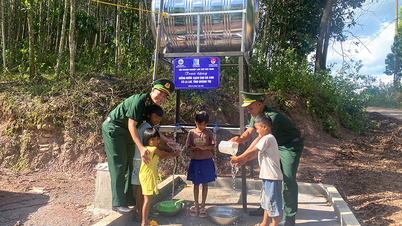








![[Maritime News] More than 80% of global container shipping capacity is in the hands of MSC and major shipping alliances](https://vphoto.vietnam.vn/thumb/402x226/vietnam/resource/IMAGE/2025/7/16/6b4d586c984b4cbf8c5680352b9eaeb0)










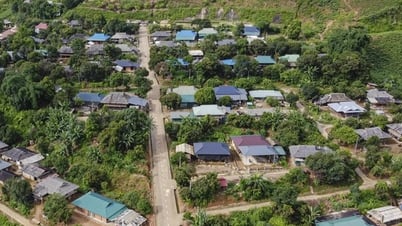
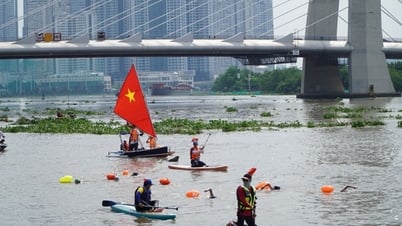
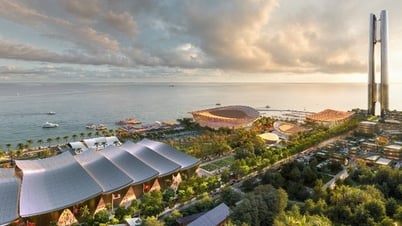
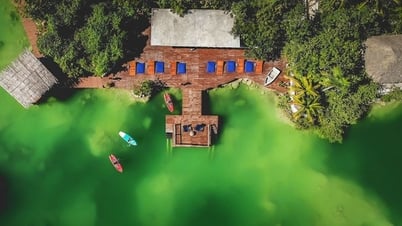
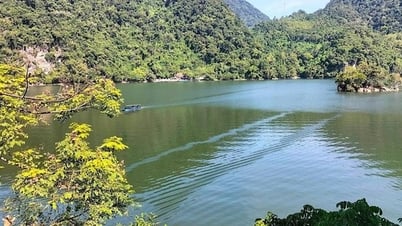






















Comment (0)